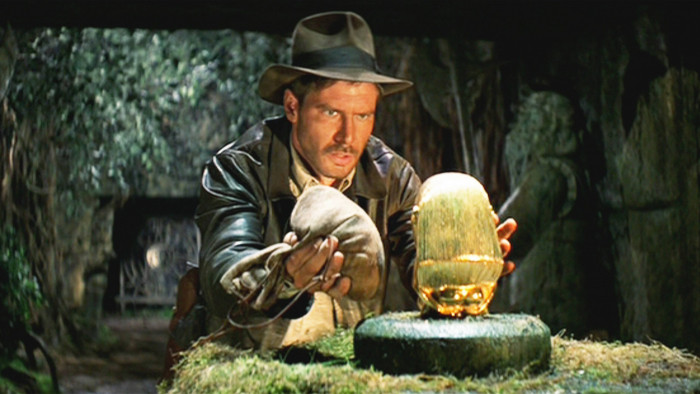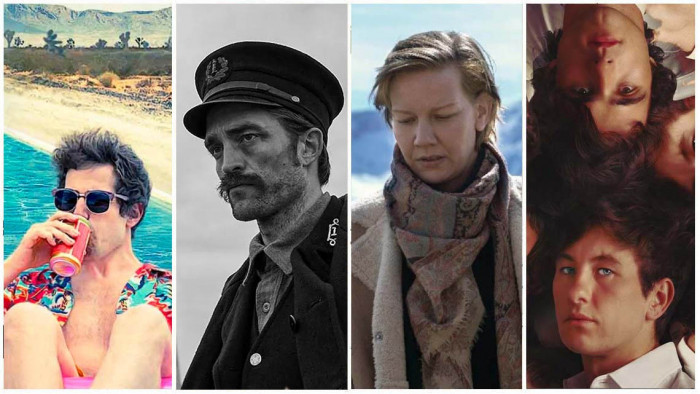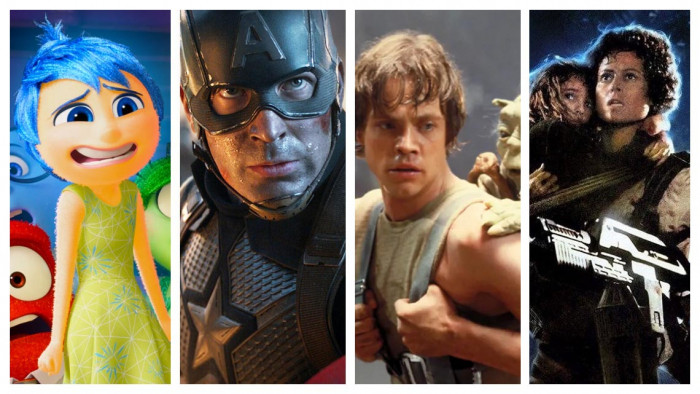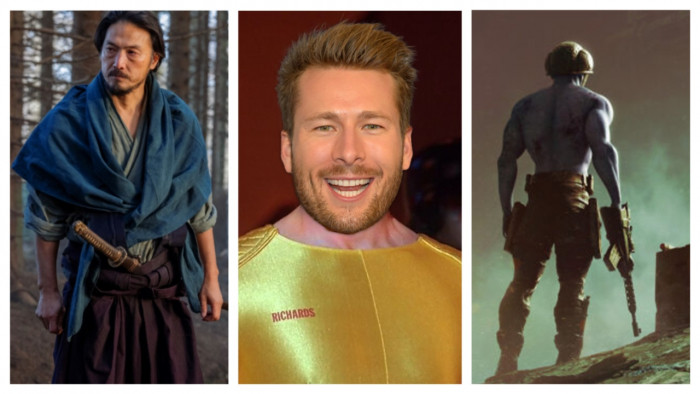8 Adaptations That Massively Deviate From The Books
8 Adaptations That Massively Deviate From The Books


We've all watched films based on books we love. Therefore, we've all had that infuriating, and slightly superior feeling arise, when we realise the film has deviated from its source material. Although it's a rare occurrence, not all turn out terribly. Some, depending on who you ask, actually turn out better than their original works - with the occasional author chiming in to agree.
With that being said, here are eight films that differ almost entirely from their literary counterparts.
CHECK OUT WHAT 30 AUTHORS HAD TO SAY ABOUT ADAPTATIONS OF THEIR WORK
L.A Confidential
The third book in James Ellroy's The LA Quartet series has become arguably his most widely known work, something that can be largely attributed to this Oscar-wining adaptation. But it's a vastly different product. Director Curtis Hanson deemed many key plot points within the book too harrowing for audiences, including a more in-depth narrative relating to Fleur-de-Lis and the Nite Owl massacre. Jack Vincennes (Kevin Spacey) and Ed Exley’s (Guy Pearce) characteristics are significantly darker than what appears on screen, while part of the film's climax actually takes place in the book's prologue. Still, removing the murkier plot points didn't hurt the film's success, as L.A Confidential found itself on numerous end of the year best-of lists, and won two Academy Awards. Even Ellroy loved it, citing the film as a "work of art".
_______________________________________________________
I Know What You Did Last Summer
When Julie receives an anonymous (and stalker-ish) note simply stating “I know what you did last summer”, she was of course terrified out of her mind. She had reason to be, as the note alluded to the accidental death of a child following a car accident that she and her friends were involved with and helped cover up. Written as a suspense thriller in 1973 by Lois Duncan, its 1997 film adaptation was less of a thriller and more of an all-out horror. Jennifer Love Hewitt starred as Julie in the gory horror flick, scripted by Kevin Williamson, which featured an eerie fisherman stalking and killing off her and her friends. Duncan was less than impressed, citing that the film's gruesome moments along with its trivialised view of death as her main concerns.
_______________________________________________________
Blade Runner
Based on Philip K. Dick's classic novel Do Androids Dream Of Electric Sheep?, Ridley Scott's Blade Runner featured a number of significant changes to the source material. Changes that could be attributed to the fact that Scott never actually finished reading it. The setting and year moved from San Francisco 1992 to Los Angeles in 2019, with the character J.F Sebastian (William Sanderson) not appearing in the novel at all. Contrary to the book, Ridley's version of Rick Deckard (Harrison Ford) is unmarried and electric sheep-less. Finally, the term "Blade Runner" is never actually used by Philip K. Dick, but was coined exclusively for the film. Rolls off the tongue easier than Do Androids Dream of Electric Sheep though.
_______________________________________________________
Forrest Gump
Robert Zemickis' Oscar-swooping 1994 drama starring Tom Hanks is the product of the lesser known novel of the same name written by Winston Groom. Featuring a different ending with his beloved Jenny Curran, the film also omits many of Gump’s worldly triumphs…including becoming a famous chess player, running for U.S Senate and travelling into space as an astronaut where he meets an ape. On top of that, Winston himself originally envisioned the role of Forrest going to John Goodman – due to the fact that Forrest is clearly stated to be 6'5" and weighing just over 17 stone in the book. That's a lot of boxes of chocolates.
_______________________________________________________
The Shining
The Shining wasn’t always the critically lauded Stanley Kubrick film it's seen as today. When it was first released in cinemas, reviews were mixed – but gradually it found its footing with audiences, going on to gross $44m. Audiences yes, the book's author Stephen King - not so much. The big screen version deviates from King's "humanised" antagonist Jack Torrance in the books, which is said to have frustrated the author even to this day. King also went on to state that the female lead Wendy (played by Shelley Duvall) is “one of the most misogynistic characters ever put on film”. King even worked on a TV mini-series that was more faithful to the book, with mixed results.
_______________________________________________________
The Hunchback Of Notre Dame (1939)
Adapting Victor Hugo's novel in the 3os was seen as nearly impossible due to the restrictive "Hays Code", which explicitly stated that the " the sympathy of the audience should never be thrown to the side of crime, wrongdoing, evil or sin". Also, due to the villainous and self-destructive nature of Archdeacon Claude Frollo , and rules "regarding respectful treatment of the clergy" within film at the time, entire plot points had to be altered. This included Claude Frollo (Cedric Hardwicke) depicted as a good-willed Archdeacon, in addition to Pierre Gringoire's character changed to adorn the role of the "male heartthrob". The lack of which was apparently a cardinal sin in 30s filmmaking. A new ending was put in place, meaning several more characters lived to the end than in Hugo's novel.
_______________________________________________________
Fight Club
Tyler and The Narrator meeting on a nude beach, making soap from the fat used from Marla's mother's liposuction and The Narrator ending up in a mental institution are three of the most notable plot points that are changed from Chunk Palahniuk's book. However, screenwriter and director David Fincher found that meeting on a airplane, stealing liposuction fat from a dumpster and a slightly more hopeful ending for The Narrator (Edward Norton) appeared a lot better on screen. Palahniuk even went as far to say that he was "a little ashamed of the book" in the liner notes of its special edition DVD, due to what Fincher had accomplished visually.
_______________________________________________________
Under The Skin
Standing out first and foremost in the Jonathan Glazer directed Under The Skin is its lack of dialogue. Opting to move the narrative forward visually rather than audibly is what sets the film, and novel, written by Michael Faber lightyears apart. Although Faber lets you know who the protagonist is from the get go, he doesn't let you know what she is until later - and what exactly she's using the males she picks up in her vehicle isn't clear either. Main character Isserely's (Scarlett Johansson) unhurried story was adapted to the screen by Glazer and Walter Campbell - the latter of which hadn't even read the book before recreating it.
Latest
Related Reviews and Shortlists


The 10 best war movies of the 21st century








